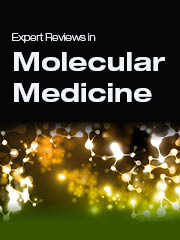Article contents
Breast cancer gene discovery
Published online by Cambridge University Press: 13 February 2004
Abstract
Many important advances have been made in the past decade in understanding breast cancer at the molecular level, and two important high-penetrance breast cancer genes – BRCA1 and BRCA2 – have been identified. However, germline mutations in these two genes are responsible for only a minority (~5%) of all breast carcinomas, and the genes responsible for the majority of breast cancer cases remain to be identified. There is evidence that there are additional high-to-moderate-penetrance breast cancer susceptibility genes but, given the high degree of molecular heterogeneity in breast carcinomas, it is likely that each of these genes is responsible for only a subset of cases. There are also many candidate low-penetrance breast cancer genes and many more are likely to be identified. In addition to germline, and somatic, sequence alterations, epigenetic changes in many genes are likely to play an important role in the pathobiology of breast cancer. Recently developed genomic technologies and the completion of the human genome sequence provide us with powerful tools to identify novel candidate breast cancer genes that could play an important role in breast tumourigenesis.
- Type
- Review Article
- Information
- Copyright
- © Cambridge University Press 2002
- 7
- Cited by


